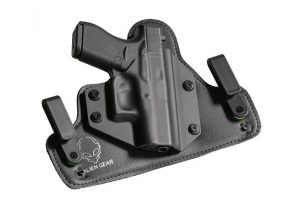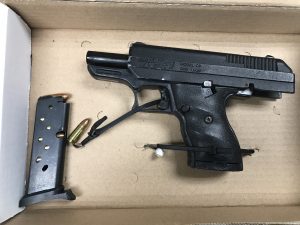 According to the United States Attorney’s Office for the District of Maryland a 19-year-old man from Greenbelt recently received an 8-year prison sentence in a multi count federal indictment. Following completion of the prison sentence, which is not parole eligible, the young defendant will be on three years of supervised release. Supervised release is the federal terminology for probation, and violation of supervised release can lead to an additional jail sentence. The case resolved by way of a guilty plea to illegal possession of a machinegun, possession with intent to distribute oxycodone and fentanyl and possession of a firearm in furtherance of a drug trafficking crime. Despite his young age, the defendant was already on probation in an unrelated Prince George’s County state court case and had been arrested and released on other state charges before being indicted in federal court. The press release from the USAO MD does not indicate whether the defendant had a juvenile criminal record, and at least some of the alleged criminal acts in the indictment occurred when he was just 18.
According to the United States Attorney’s Office for the District of Maryland a 19-year-old man from Greenbelt recently received an 8-year prison sentence in a multi count federal indictment. Following completion of the prison sentence, which is not parole eligible, the young defendant will be on three years of supervised release. Supervised release is the federal terminology for probation, and violation of supervised release can lead to an additional jail sentence. The case resolved by way of a guilty plea to illegal possession of a machinegun, possession with intent to distribute oxycodone and fentanyl and possession of a firearm in furtherance of a drug trafficking crime. Despite his young age, the defendant was already on probation in an unrelated Prince George’s County state court case and had been arrested and released on other state charges before being indicted in federal court. The press release from the USAO MD does not indicate whether the defendant had a juvenile criminal record, and at least some of the alleged criminal acts in the indictment occurred when he was just 18.
According to the facts recited by the government at the plea hearing the Prince George’s County Police began investigating the defendant back in the spring of 2022 for suspected firearm and drug trafficking offenses. The defendant allegedly advertised the sale of guns and narcotics through social media posts, which ultimately lead to the execution of a search warrant of his apartment. In preparation for the execution of the search warrant officers observed the defendant conduct a hand-to-hand transaction with an unidentified individual outside of the apartment. The defendant allegedly reached into a designer bag and handed the contents to the suspected customer. A short time later the defendant left his apartment with the same designer bag. Prince George’s County officers followed the suspect as he left in a rideshare vehicle, and conducted a traffic stop a short time later. After ordering the suspect out of the vehicle police observed a .40 caliber handgun with an obliterated serial number on the floor where he was sitting. Cops also recovered close to 300 counterfeit oxycodone pills containing fentanyl and $790 in cash. Despite these facts the defendant was released 12 days later at a bail review. Rather than stay on the straight and narrow, the defendant admitted in the plea that he continued to sell drugs and possess firearms.
Less than two months after the first arrest, and shortly after his 19th birthday a PG County police officer in District Heights observed the defendant smoking marijuana on a sidewalk. The officer then observed the defendant discard an item behind a car and begin to walk away. This action obviously peaked the officer’s interest, and he exited his unmarked patrol car to have a closer look. The defendant then fled on foot but was apprehended a short time later. A search in the area revealed an AR-15 style ghost gun with a loaded 30 round magazine and a round in the chamber. Police also found two pill bottles that contained 5mg oxycodone pills and counterfeit oxy pills with a fentanyl mixture. The defendant was arrested and charged in Prince George’s County state court, but the charges were announced nolle prosequi in lieu of the federal indictment.
 Criminal Defense Lawyer Blog
Criminal Defense Lawyer Blog










